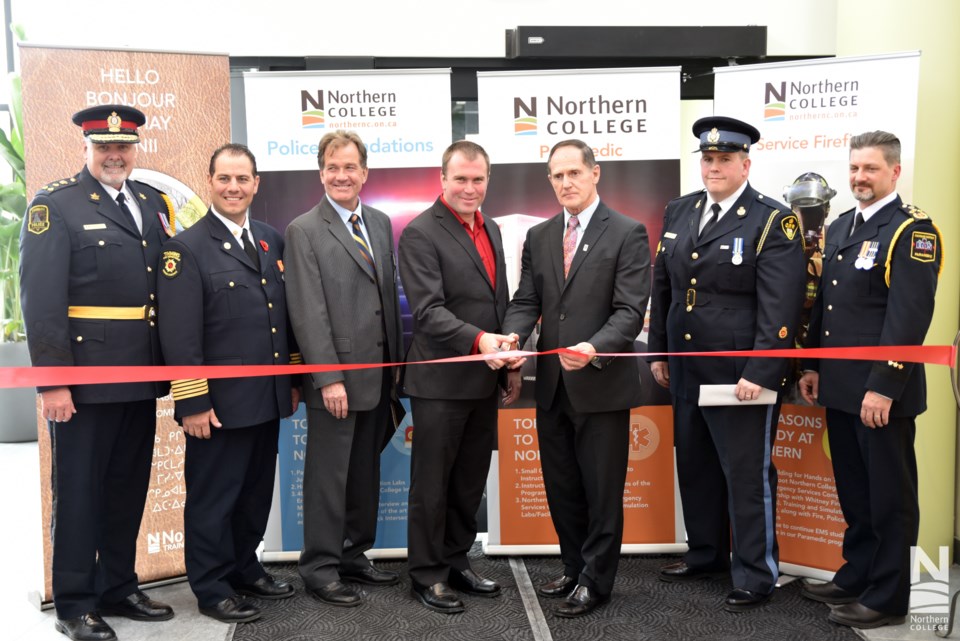Northern College in Timmins marked the opening of its $19.2-million Integrated Emergency Services Complex on Oct. 30.
The new, 40,000-square-foot building houses the college’s pre-service firefighter, paramedic, paramedic bridging, and police foundations programs, and includes community partnerships with the City of Timmins’ Whitney Fire Station, Cochrane District EMS, and Health Sciences North Base Hospital.
“It means that our police, fire and paramedic programs will have state-of-the-art facilities – there is nothing else that could compare at an Ontario College,” said Northern College president Fred Gibbons in a news release.
“It’s more than just the post-secondary programs that are going to benefit from this; we want our facility to be used by community professionals as well.”
Funding for the building was provided by the federal and provincial governments.
In addition to brand new fire, paramedic and policing facilities, the building also boasts a mock courtroom, jail cell, exterior intersection, interview, fingerprint rooms and scenario labs.
An integrated Advanced Disaster Management Simulator (ADMS) – a system used by the U.S. Department of Homeland Security – will offer students a chance to prove what they’ve learned in the class room through scenarios in a true-to-life virtual environment.
“Normally in an academic environment, those three programs would train separately, and then when they get out into the field, they would be, by nature of the job, compelled to work alongside each other and get to know the diversity of their roles,” said Sarah Campbell, dean of health sciences and emergency services.
“Here, that’s going to happen when all of the students are actually studying in their academic programming and then when they graduate they’ll already have those critical thinking skills and inter-professional skills, so they’re more prepared for the field.”




